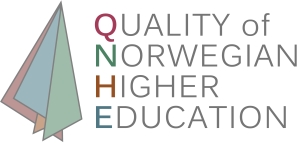
Researchers on the project have for the last two years been working on an edited volume. The book has now a release date, and is scheduled to be out by 6th of June. About the book:
This book focuses on quality work in higher education, and examines the relationship between the organizational and pedagogical dimensions of quality work in higher education. Bringing together different disciplinary traditions, including educational science, sociology, and organisational studies, it addresses the following principal research question: How is quality work carried out in higher education?
The book addresses a wide variety of academic, administrative and leadership practices that are involved in quality work in higher education institutions. The chapters in this book examine core issues crucial in the design and content of study programs, such as modes of teaching, learning and curricula design, as well as institutional practices regarding assessment and quality enhancement. The introductory and concluding chapter present an overarching focus on quality work as a lens to analyse intentional activities within higher education institutions directed at how study programmes and courses are designed, governed, and operated.
The book consists of 10 chapters by researchers in this project, covering a wide set of themes and empirical settings.


 The researchers highlight in the working paper that quality indicators have different kinds of functions – for system and institutional governance, as an information source for the public (incl students who apply to higher education), as a basis for quality enhancement practices in the institutions, and for purposes of conducting research.
The researchers highlight in the working paper that quality indicators have different kinds of functions – for system and institutional governance, as an information source for the public (incl students who apply to higher education), as a basis for quality enhancement practices in the institutions, and for purposes of conducting research.